Durland Scholars

Explore the academic journeys and impactful research projects of our exceptional scholars, all made possible by the Durland Scholarship. Here are some of the stories that define our academic community.
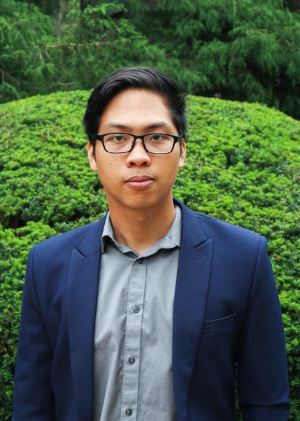 My name is Khoi Anh (Ayden), and I am currently pursuing a Master's in Industrial-Organizational Psychology at Saint Mary's University (SMU). I returned to SMU after working for a few years in talent acquisition and consulting at KPMG, IBM, and KBRS. I first came to Halifax in 2018 to pursue my BA in Honors Psychology and Certificate in HR Management at SMU. During my undergrad, I had the wonderful opportunity to work with Dr. Nicolas Roulin and Dr. Lucie Kocum on multiple research projects and initiatives on talent assessment, employment interviews, and Diversity, Equity, and Inclusion (DEI). My goal is to make the hiring process at organizations more fair, objective, scientifically sound, and accessible, as well as reduce discrimination against minority job seekers.
My name is Khoi Anh (Ayden), and I am currently pursuing a Master's in Industrial-Organizational Psychology at Saint Mary's University (SMU). I returned to SMU after working for a few years in talent acquisition and consulting at KPMG, IBM, and KBRS. I first came to Halifax in 2018 to pursue my BA in Honors Psychology and Certificate in HR Management at SMU. During my undergrad, I had the wonderful opportunity to work with Dr. Nicolas Roulin and Dr. Lucie Kocum on multiple research projects and initiatives on talent assessment, employment interviews, and Diversity, Equity, and Inclusion (DEI). My goal is to make the hiring process at organizations more fair, objective, scientifically sound, and accessible, as well as reduce discrimination against minority job seekers.
Research Project:
Developing a Customized Interview Training for New Immigrants in Nova Scotia
In 2022, Nova Scotia welcomed over 12,650 permanent residents, which set an all-time high record of landed immigrants in a year (Nova Scotia, 2023). Although immigrants are a driving force for Canada's economy, they tend to face higher unemployment rates compared to those born in Canada. One solution is to provide job search training and resources for newcomers. Indeed, research shows that interview training improves job applicant performance (Maurer et al., 2008; Roulin et al., 2023). My research project aims to make interview training programs more effective for immigrants by examining if a trainer’s background and customized training content tailored toward recent immigrants impacts interview anxiety, use of impression management tactics, perceived fairness, and ultimately interview performance. Recent immigrants will be assigned into 1 of 4 conditions: (1) control (no training), (2) training delivered by a Caucasian trainer, (3) training delivered by an ethnic minority trainer with lived experience as an immigrant, and (4) training delivered by same minority trainer, but including specific content tailored toward immigrants (e.g., sharing personal stories, showcasing foreign experiences), to build a deeper connection with participants. I hypothesize that having a trainer with lived experience and adding learning content tailored towards immigrant will improve outcomes. This research has significant implications on how we can build more effective employment interview training programs for immigrants in Nova Scotia and Canada. It will generate evidence-based recommendations on how to better select trainers, examine context-specific training content, and build a deeper connection with applicants.
Supervisor: Dr. Nicolas Roulin, Associate Professor of Industrial-Organizational Psychology, Saint Mary's University, Department of Psychology
Major Research Theme: Innovation in Business and Workplace Studies
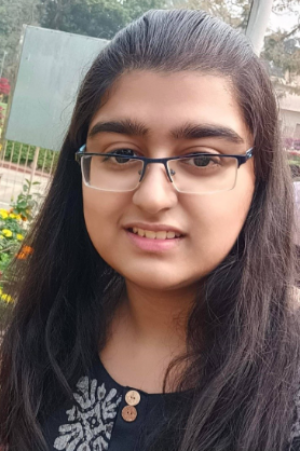 I completed my undergraduate studies in India in Electronics & Communication Engineering. Before starting my Master's at Saint Mary's University, I was also awarded Mitacs Globalink Research Intern, a fully funded research internship program in Canada. I have also worked as an AI engineer in 2 ed-tech start-ups and worked as an advisor in generative AI module building in improving self-driving car mechanisms. My main research domain is Machine Learning, Image & Video Processing & Computer Graphics, LLMs.
I completed my undergraduate studies in India in Electronics & Communication Engineering. Before starting my Master's at Saint Mary's University, I was also awarded Mitacs Globalink Research Intern, a fully funded research internship program in Canada. I have also worked as an AI engineer in 2 ed-tech start-ups and worked as an advisor in generative AI module building in improving self-driving car mechanisms. My main research domain is Machine Learning, Image & Video Processing & Computer Graphics, LLMs.
Research Project:
Linear Object Detection & Optimization with Deep Learning Algorithms. This research can be helpful to improve self-driving car mechanisms, astronomical decisions.
Supervisor name: Dr. Jiju Poovvancheri
Research Theme: Innovative Science
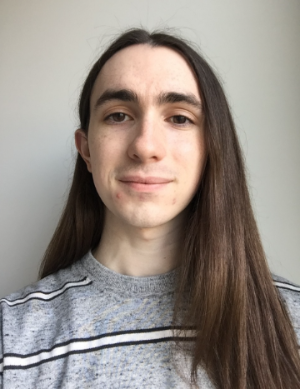 I am an astrophysicist currently in the 2nd year of my PhD at SMU. I completed my honours undergraduate degree in astronomy at the University of Waterloo, where through the co-op program I held various science and programming positions in fields ranging from genomics to climate change and wildfires to renewable energy in remote communities.
I am an astrophysicist currently in the 2nd year of my PhD at SMU. I completed my honours undergraduate degree in astronomy at the University of Waterloo, where through the co-op program I held various science and programming positions in fields ranging from genomics to climate change and wildfires to renewable energy in remote communities.
I then completed a Masters degree in astronomy at SMU, with a research focus on modelling star clusters and black holes. Since beginning at SMU, I have also been involved in a number of other endeavours, including the Canadian space telescope mission CASTOR, the graduate student committee of the Canadian Astronomical Society, Astronomers for Planet Earth and the SMU TA Union.
Research Project:
Globular clusters (GCs) are massive, ancient and pristine spherical groups of stars held together by gravity, which exist in nearly all galaxies and play a vital role in our understanding of the Universe, what it's made of, how old it is and how it evolves, today and in the distant past. Likewise, populations of black holes within these clusters play a huge role in how they evolve over their lifetimes.
My current research revolves around the computational modelling of a large sample of GCs in the Milky Way, based on many observations of the stars taken from a number of ground and space based observatories.
The models allow us to place constraints on the cluster properties themselves, as well as the populations of hidden stellar remnants within, like black holes. Using these snapshots of the present day GCs and our theoretical understanding of how these systems evolve over billions of years, we can then work backwards, unravelling the unseen past of these ancient objects, individually and as a population, like galactic archaeologists.
Supervisor Name: Dr. Vincent Hénault-Brunet
Associate Professor, Department of Astronomy & Physics Director, Burke-Gaffney Observatory
Major Research Themes: Innovative Science
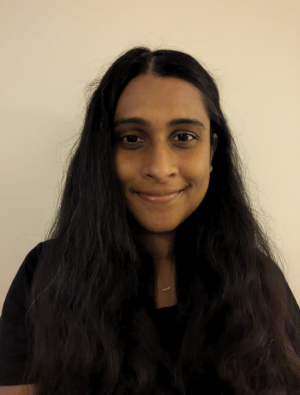 My name is Maheshi Dharmasiri, I grew up in Sri Lanka, a beautiful tropical island in the Indian Ocean. As a child I enjoyed exploring the island and was fascinated everything related to the outdoors. That curiosity has continued throughout my life and I believe it is the spark which drives me to do research in Biology and Environmental Science. I moved to Halifax, NS in 2012 to complete my undergraduate degree at Saint Mary’s University. I graduated with a BSc in Biology and a BA in IDS. My MSc research focused on studying the song of an Atlantic Canadian population of male European Starlings, and determining if song signals age. I started my PhD in 2023 on soil biodiversity data gaps and policy in Canada.
My name is Maheshi Dharmasiri, I grew up in Sri Lanka, a beautiful tropical island in the Indian Ocean. As a child I enjoyed exploring the island and was fascinated everything related to the outdoors. That curiosity has continued throughout my life and I believe it is the spark which drives me to do research in Biology and Environmental Science. I moved to Halifax, NS in 2012 to complete my undergraduate degree at Saint Mary’s University. I graduated with a BSc in Biology and a BA in IDS. My MSc research focused on studying the song of an Atlantic Canadian population of male European Starlings, and determining if song signals age. I started my PhD in 2023 on soil biodiversity data gaps and policy in Canada.
Research Project: Soil is one of the most biodiverse habitats on Earth, and it provides a wide range of ecosystem services. Despite soil biodiversity constituting a significant portion of Earth’s biodiversity, substantial data gaps persist, with most recent research on soil biodiversity conducted in Western Europe and the United States, while our understanding of soil biodiversity across Canada remains limited. The goal of my PhD is to synthesize our understanding of soil biodiversity across Canada and assess how policies are being implemented to manage soil biodiversity, with Nova Scotia as a focal point. My objectives are to: 1. conduct an analysis on the spatial data gaps of soil biodiversity in Canada; 2. investigate the effects of land use on soil biodiversity in Nova Scotia (with possible extension to Canada dependent on sample size); 3. survey a range of Nova Scotian policy makers on nature conservation and biodiversity targets in order to understand the extent to which soil biodiversity is incorporated into policy. I plan to use this information to provide recommendations on key areas for future sampling and potential policy approaches to protect soil biodiversity.
Supervisor Name: Dr. Erin Cameron, Associate Professor, Department of Environmental Science.
Major Research Theme: Climate Change and the Environment
 I am in my first year of the Master of Science in Applied Psychology program in the Forensic Psychology stream at Saint Mary’s University. I completed my undergraduate degree in 2023 at Dalhousie University with BA in Psychology with honours and a minor in Law, Justice, and Society. I am passionate about research on decarceration, rehabilitation, gender-based violence, and the experiences of marginalized people within the criminal justice system. I am from Dartmouth, Nova Scotia. Outside of school, I love rock climbing, hiking, and reading.
I am in my first year of the Master of Science in Applied Psychology program in the Forensic Psychology stream at Saint Mary’s University. I completed my undergraduate degree in 2023 at Dalhousie University with BA in Psychology with honours and a minor in Law, Justice, and Society. I am passionate about research on decarceration, rehabilitation, gender-based violence, and the experiences of marginalized people within the criminal justice system. I am from Dartmouth, Nova Scotia. Outside of school, I love rock climbing, hiking, and reading.
Research Project:
My research aims to qualitatively understand the experiences of transgender and gender diverse individuals with incarceration and criminalization in Nova Scotia. I will be interviewing transgender and gender diverse people in Nova Scotia on their experiences with incarceration, the criminal justice system, legal actors, and life after incarceration. This research will allow us to better understand how trans and gender diverse people are treated by the criminal justice system in Nova Scotia and the outcomes of these experiences, as well as what services and supports are needed by this population.
Supervisor Name:
Dr. Steven Smith
Professor of Psychology
Department of Psychology
Major Research Theme:
Connecting to Communities
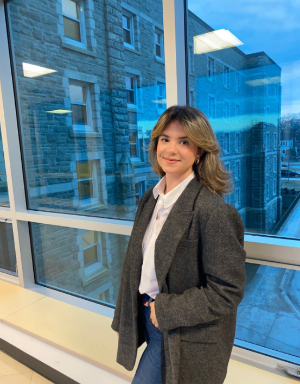 Evangelia (Eva) Kazakou is a first year Ph.D. Student in Global Development Studies at Saint Mary's University. Her academic journey began with a B.A. in International, European, and Area Studies in 2018, followed by a M.A. in Gender, Society, and Politics in 2022, both earned at Panteion University of Social and Political Sciences in Athens, Greece.
Evangelia (Eva) Kazakou is a first year Ph.D. Student in Global Development Studies at Saint Mary's University. Her academic journey began with a B.A. in International, European, and Area Studies in 2018, followed by a M.A. in Gender, Society, and Politics in 2022, both earned at Panteion University of Social and Political Sciences in Athens, Greece.
In addition to her academic pursuits, Eva gained practical experience through internships that broadened her perspective. She served as an intern at the Greek Embassy in France, participating in the Erasmus+ program, which enriched her understanding of international relations. Furthermore, her dedication to human rights advocacy led her to a 6-month internship in the Greek Department of Amnesty International, where she actively contributed to the organization's mission.
Research Project:
Eva has engaged in impactful research as a research assistant for the SSHRC Project titled "Gendering Violence and Precarity in Forced Migration: Asylum Seeking Women in the Eastern Mediterranean," led by Dr. Evangelia Tastsoglou. She is currently a Research Assistant for the Canadian project “Violence against Women Migrants and Refugees: Analyzing Causes and Effective Policy Response” (GBV-MIG Canada) led by Dr. Tastsoglou. She has also engaged in consultancy on refugee issues with Dr. Tastsoglou.
Her master’s thesis “EU Border Security and Refugee Precarity: The Gender Dimension of EU Forced Migration Management”, combines the disciplinary fields of international relations, migration-refugee studies, and gender studies, shifting the focus from a state-centered view of security to an anthropocentric one. Her aspiration is to continue this combination of studies through the Ph.D. Program in Global Development Studies at Saint Mary’s University, examining EU’s border management through a critical feminist approach. Her research will explore the integration of a gender perspectives in migration and asylum policies and especially in border management practices.
Supervisor: Evangelia (Evie) Tastsoglou, PhD, LLM
Major Research theme: Modern Global Citizenship
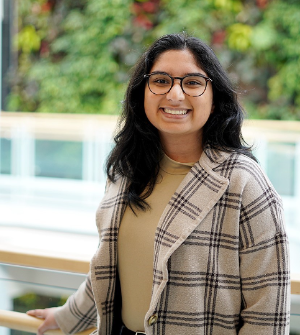 I am a second year student in the Masters of Science in Astronomy program here at Saint Mary’s. Before coming to Saint Mary’s, I did a Bachelors of Science at the University of British Columbia (UBC), completing a Combined Honours Major in Physics and Astronomy. At UBC, I held an NSERC Undergraduate Student Research Award and completed an honours research project under the supervision of Dr. Allison Man looking at how quickly different galaxies shut off their star formation with the goal of furthering our understanding of galaxy evolution.
I am a second year student in the Masters of Science in Astronomy program here at Saint Mary’s. Before coming to Saint Mary’s, I did a Bachelors of Science at the University of British Columbia (UBC), completing a Combined Honours Major in Physics and Astronomy. At UBC, I held an NSERC Undergraduate Student Research Award and completed an honours research project under the supervision of Dr. Allison Man looking at how quickly different galaxies shut off their star formation with the goal of furthering our understanding of galaxy evolution.
Research Project:
Galaxies come in a diverse array of shapes and sizes, indicating different formation and evolution mechanisms for each galaxy. By analyzing the light we observe from a galaxy, we can determine different physical properties such as its mass and age, which inform us on its evolutionary path. Additionally, with the launch of the James Webb Space Telescope (JWST) and its impressive sensitivity in the infrared, we can probe the inner regions of faint far away galaxies, to paint a full picture of what is occurring within these galaxies. I am part of a nationwide collaboration with access to 200 hours of JWST observing time, with my project goal being to statistical fit the light from individual regions within galaxies to obtain physical two-dimensional property (mass, star formation rate, age, etc.) maps. These maps inform us on the current state of the galaxy, and how the galaxy is changing. Additionally, I aim to answer how the differences in the internal state of the galaxy affect its global properties and evolution.
Supervisor: Dr. Marcin Sawicki, Canada Research Chair (Tier I) and Professor in the Department of Astronomy and Physics
Major Research Theme: Innovative Science
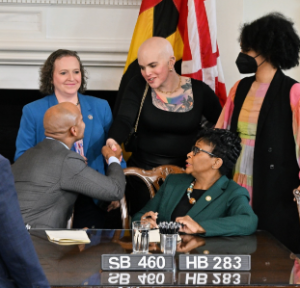 Margo Quinlan (she/they) was born and raised in Baltimore, Maryland, USA. She has spent years in community organizing and advocacy spaces, mobilizing campaigns around issues of housing, healthcare, prison abolition, queer and reproductive justice. She is most proud of the organizing she’s done to bring together the trans community and our allies to win large-scale healthcare protections in Maryland at a time when trans care is being banned and criminalized in neighboring states and all across the US.
Margo Quinlan (she/they) was born and raised in Baltimore, Maryland, USA. She has spent years in community organizing and advocacy spaces, mobilizing campaigns around issues of housing, healthcare, prison abolition, queer and reproductive justice. She is most proud of the organizing she’s done to bring together the trans community and our allies to win large-scale healthcare protections in Maryland at a time when trans care is being banned and criminalized in neighboring states and all across the US.
Margo has recently resettled in Nova Scotia with her partner and young children. She is excited to work on a Masters in Women and Gender Studies at St. Mary's University, focusing her research on the intersections of modern global proto fascist movements with the large-scale revocation of reproductive and gender affirming health care. She left the US in the face of increasing attacks on her friends and community, and with a central goal of protecting her family as trans and queer families nation-wide face separation by state forces.
Outside of organizing spaces, Margo spends her time with her kids, her partners, and in community with other trans people - sharing joy, building power, and collectively dreaming of a world where we are given the full depth of love that we all deserve.
Research Project:
I plan to focus my research on the intersections of rising anti-transgender policy and violence with the rise of fascist movements in historical and contemporary contexts. My experience as a community organizer and political activist in the United States has allowed me to witness first-hand the interconnectedness of broad policy attacks on bodily autonomy with the spread of proto-fascist ideologies in my community and across my country. I view the escalating media and political focus on the rights of trans bodies as a symptom of the endemic reification of cisheteronormative gender roles as a means to enforce white supremacist and colonial power structures.
I plan to engage in mixed research methods that allow me to study historical movements of women, racialized minorities, queer people, and trans and gender expansive minorities, in order to draw parallels to the proto-fascist movements that continue to gain traction in the global north. I believe that protests against COVID-19 precautions in Canada and Europe, the erosion of abortion access in the US, and the revocation of trans healthcare in the UK, the US and elsewhere, have all served as a spear-tip to rising authoritarian political agendas. I plan to engage in archival study and secondary data analysis, as well as interviews with trans elders who can bring a contemporary perspective on organizing struggles from the last several decades.
Supervisor Name: Dr. Michele Byers, Women & Gender Studies
Major Research Theme: Connecting to Communities
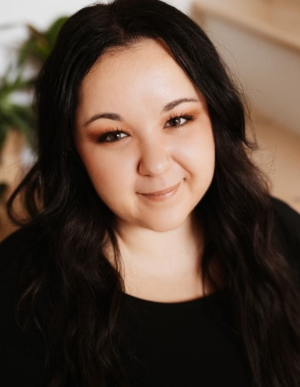 I am a Clinical Therapist in Mental Health and Addictions who started their academic pursuits at Saint Mary's University. In 2017 I achieved an Honours Bachelor of Arts, where I completed my first thesis, on student binge drinking. I continued my education at St. Thomas University in 2017/2018, where I obtained a Bachelor of Social Work and gained further research experience as a Research Assistant who explored community kitchens and poverty in Canada. In 2019 and 2020, I pursued and achieved a Master of Clinical Social Work at the University of Calgary, where I had the opportunity to be a Research Assistant who supported the development of a website that provides Canadian resources on Autism and other comorbid disorders.
I am a Clinical Therapist in Mental Health and Addictions who started their academic pursuits at Saint Mary's University. In 2017 I achieved an Honours Bachelor of Arts, where I completed my first thesis, on student binge drinking. I continued my education at St. Thomas University in 2017/2018, where I obtained a Bachelor of Social Work and gained further research experience as a Research Assistant who explored community kitchens and poverty in Canada. In 2019 and 2020, I pursued and achieved a Master of Clinical Social Work at the University of Calgary, where I had the opportunity to be a Research Assistant who supported the development of a website that provides Canadian resources on Autism and other comorbid disorders.
Research Project:
Drawing on my professional experience in Corrections and Community Mental Health, my current research explores the experiences of associative stigma toward service providers who work with people that have sexually offended. Using the theory of stigma and a narrative interviewing method, I intend to fill a current gap in literature and create more research that is inherently de-stigmatizing.
Supervisor Name:
My supervisor is Dr. Jamie Livingston, Associate Professor, in the Criminology department and my second reader is Dr. Skye Stephens, Associate Professor, in the Psychology department.
Major Research Theme:
Connecting to Communities
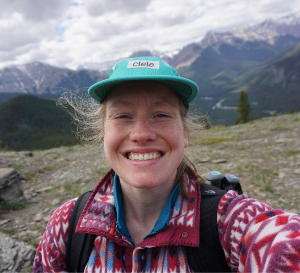 My name is Dana and I am from Montreal, Quebec. I completed my undergraduate degree in Geology at McGill University before moving to British Columbia to do an MSc in Earth Sciences at Simon Fraser University. After spending two years on the West Coast, I moved to Halifax in January 2023 to start my PhD in Applied Sciences here at Saint Mary’s University.
My name is Dana and I am from Montreal, Quebec. I completed my undergraduate degree in Geology at McGill University before moving to British Columbia to do an MSc in Earth Sciences at Simon Fraser University. After spending two years on the West Coast, I moved to Halifax in January 2023 to start my PhD in Applied Sciences here at Saint Mary’s University.
Research Project: Within the Earth’s crust, pre-existing geological structures represent imperfections, or zones of weakness, that act as pathways for crustal deformation at all scales. My research focuses on understanding how the presence and nature of pre-existing geological structures in the Earth’s crust influence the growth and development of mountain systems and how the role of these structures can vary over time and space. The main objectives of my project are to investigate the roles of pre-existing structures in the Appalachian Mountains of Nova Scotia and the Rocky Mountains of the Yukon, and to produce a general framework for the evolution of these large-scale systems over time and space. I will apply an approach combining field-based methods (mapping, sampling) with novel analytical tools, including geochronology (dating rocks) and microstructural analysis. These results will have direct implications on our understanding of how the strength and behaviour of the Earth’s crust can vary over long timescales and may guide future studies of modern-day geological systems that pose a potential seismic hazard.
Supervisor Names: Dawn Kellett (adjunct professor; Department of Geology), Shawna White (assistant professor; Department of Geology)
Major Research Theme: Innovative Science – Exploring Fundamentals, Developing Applications
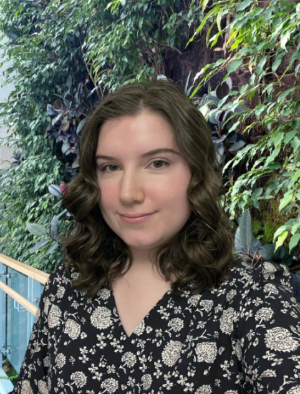 Jacqueline Shaw is a MSc student in Industrial/Organizational Psychology at Saint Mary’s University. With an interest in health and safety, her research centers around employee well-being, safety culture, and human factors. Jacqueline has been actively involved in the university’s research activities since 2017 studying the effects of personality on incivility, healthcare perceptions during COVID-19, and how employer response to suicide affects company brand image. As a Student Member of the CN Centre for Occupational Health and Safety, Jacqueline’s work aims to increase collaboration between research and practice. She is currently involved in several course consulting projects and conducting her thesis on safety culture.
Jacqueline Shaw is a MSc student in Industrial/Organizational Psychology at Saint Mary’s University. With an interest in health and safety, her research centers around employee well-being, safety culture, and human factors. Jacqueline has been actively involved in the university’s research activities since 2017 studying the effects of personality on incivility, healthcare perceptions during COVID-19, and how employer response to suicide affects company brand image. As a Student Member of the CN Centre for Occupational Health and Safety, Jacqueline’s work aims to increase collaboration between research and practice. She is currently involved in several course consulting projects and conducting her thesis on safety culture.
Research Project:
The present study examines whether the relationship between safety climate and organizational attractiveness, defined as individuals' affective and attitudinal perceptions of a potential employer, is mediated by an individuals' level of conscientiousness. While there is much research on these factors individually, there is little examination of the relationship between safety perceptions, organizational image, and personality together. From the literature, it is hypothesized that there will be a relationship between safety climate and organizational attractiveness as both share conscientious attitudes about a company and its practices. Personality might play a mediating role since company conscientiousness, reflected in safety-conscious practices, may attract high-performing conscientious applicants. A longitudinal online survey of 300 participants is proposed, measuring organizational attractiveness, safety climate, and conscientiousness. A mediation analysis will be used to examine the results. The findings of this study may suggest an important role of personality and safety perceptions in the retainment of conscientious and skilled applicants. These results may encourage organizations to include descriptions of their health and safety commitment in their recruitment materials. This action may increase applicant retention, attract conscientious and high performing individuals, and reveal the need for further research investigating personality as a mediating factor for organizational image.
Supervisor: Dr. E. Kevin Kelloway, University Research Professor, Departments of Psychology and Management
Major Research Theme: Innovation in Business and Workplace Studies
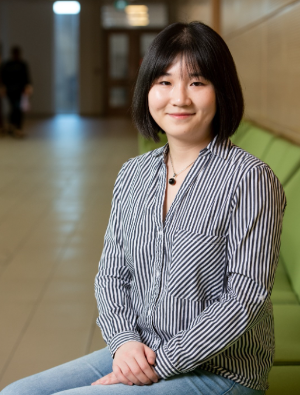 Throughout my graduate studies, I have researched a variety of topics in workplace contexts, including mental health, motivation, leadership, organizational culture, and burnout and strain. My research interests focus on mental health in the workplace. My research and career goal would be to design and implement mental health intervention programs at work.
Throughout my graduate studies, I have researched a variety of topics in workplace contexts, including mental health, motivation, leadership, organizational culture, and burnout and strain. My research interests focus on mental health in the workplace. My research and career goal would be to design and implement mental health intervention programs at work.
Research Project:
Suicide is among the leading causes of death among working individuals in Canada. Employee suicide has profound repercussion not only for the individual and the family, but also for the organization where the individual works. Yet many suicides are preventable. To develop effective prevention strategies, it is important to first understand what factors could impact employee suicide. Accordingly, my research focuses on exploring how work might affect individuals’ mental health problems. More specifically, my research aims to examine the role of various workplace factors, e.g., transformational leadership, meaningfulness of work, and job stress, in predicting employee suicidal ideation using survey responses collected from working adults. It is expected that transformational leadership and meaningfulness of work could alleviate employees’ suicidal ideation by decreasing their feelings of hopelessness and depression when job stress is at low level. However, the positive impacts would be limited when employees experience high levels of job stress.
Supervisor Name:
Kevin Kelloway M.Sc., MFA, PhD
University Research Professor
Professor of Psychology and Management
Major Research Theme: Innovation in Business and Workplace Studies